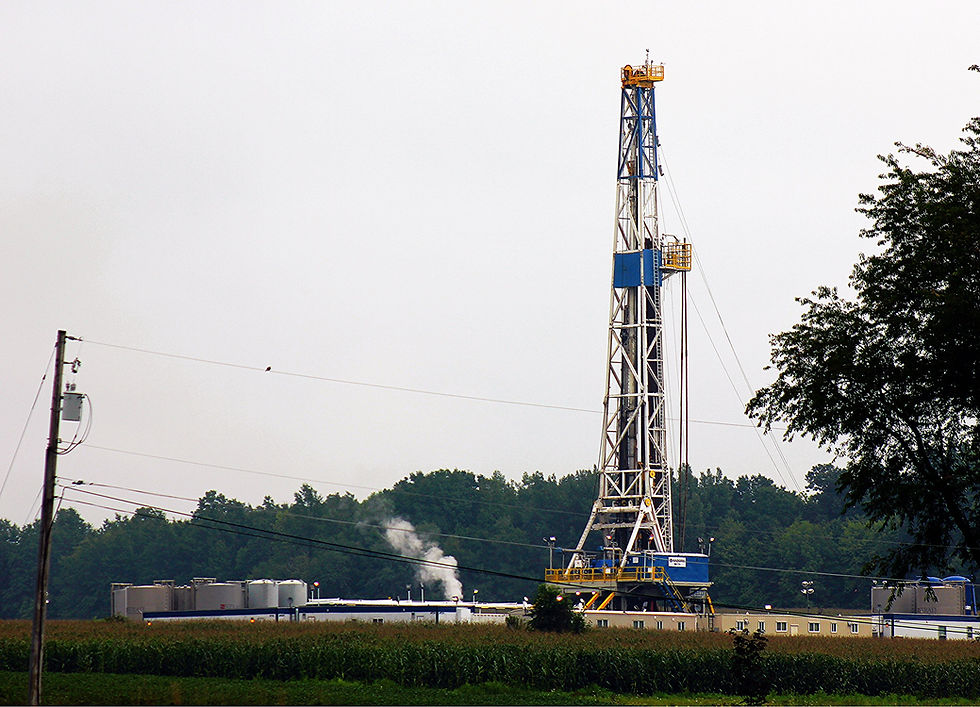Reskilling UK oil and gas workers is vital for both our economy and the clean energy transition
- Feb 24, 2025
- 3 min read
Reskilling UK fossil fuel workers is crucial to safeguarding the future of our economy, our energy sector and the communities that are key to it, writes Sam Payne from the Conservative Environment Network.

It doesn't matter if it is government climate policy, the market's appetite, or the need for energy security and the dwindling oil and gas reserves in the North Sea: our country is decarbonising - whether we like it or not.
But, as the sun sets on Britain's long-standing oil and gas industry, this does pose economic challenges. It risks leaving thousands of oil and gas workers without jobs, many living in areas entirely reliant on these industries. Therefore, to avoid economic hardship and retain skilled workers, we need to be smarter.
We can do this by creating clean tax breaks for oil and gas companies, incentivising them to reskill their workers and helping them and their company transition swiftly to the low-carbon sectors.
We cannot deny the oil and gas sector in the UK has produced some of the most skilled professionals in the world - from engineers and technicians, to project managers and offshore operators. As well as creating a skilled, well-paid workforce, the industry has supported local economies and underpinned communities.
However, as the world pivots away from fossil fuels and towards clean energy, there is understandable concern from these workers.
Without support, entire communities, particularly in regions where oil and gas production has been a major employer, such as the North East of Scotland, stand to suffer. As local economies lose a source of income and are left with limited job alternatives, the social fabric of these communities could start to unravel, creating even more economic disparity and left-behind areas.
In many cases, the only option available to these families is to move overseas to work in countries with significant remaining oil and gas reserves. Indeed, the demand for experienced oil and gas professionals in these countries remains high, providing them with long-term job security and attractive benefits.
The UK has invested heavily in developing these skills over decades. If we don't act to try and give these workers an incentive to stay, we risk not only losing a talented workforce and causing economic chaos but also undermining the very foundation of a decarbonised future.
The transition to clean energy doesn't have to come at the cost of workers' livelihoods and local communities. Up to 90 per cent of the skills in oil and gas are transferable to low-carbon sectors, such as offshore wind, hydrogen, and carbon capture and storage. From technical expertise in operating complex machinery to project management and safety protocols, much of the knowledge that workers have developed over years of working in fossil fuel sectors can easily be applied to emerging clean energy industries.
What's needed, however, is a concerted effort to bridge the gap between fossil fuel and clean energy industries. We must ensure that workers have access to targeted training, financial support, and a clear path toward employment in clean energy industries. Industry leaders and policymakers should be working together to create programmes that make the transition as seamless as possible, offering workers the skills, certifications, and experience needed to thrive in a green economy.
The UK has already made strides with initiatives like the Energy Skills Passport, helping workers transition between sectors within the energy industry. While this is a positive step, more needs to be done. To ensure a successful transition, we must offer further incentives for businesses to invest in workforce development. Tax breaks, such as an allowance within their Energy Profits Levy liabilities, for companies that provide training and reskilling opportunities would encourage them to make the upfront investment in their workers. This would also ensure that those already operating in the North Sea are encouraged to continue investing in their workforce and contribute to the energy transition, rather than just being squeezed out.
Reskilling oil and gas workers is not just about helping individual workers. It's about safeguarding the future of our economy, our energy sector and the communities that are key to it. By providing the right support, we can make sure that the talented individuals who built the foundations of our energy industry today have the opportunity to help build the future of clean energy.
First published by BusinessGreen. Sam Payne is the Senior Climate Programme Manager of CEN.




Comments